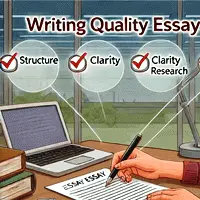 Writing a research paper is a process of discovery, exploration, and presentation that demands rigor, attention to detail, and a deep understanding of the subject matter. At the peak point of this phase, the conclusion of a research paper is not merely a summary but a decisive synthesis of the research findings, interpretations, and implications. It serves as the final narrative that solidifies the value of the work and its contributions to the field, ensuring the reader departs with a clear comprehension of the study’s importance and the researcher’s insights. Crafting an impactful paper conclusion is as critical as any other part of the research document. It is where the researcher has the opportunity to reinforce their arguments, highlight the significance of their findings, and leave a lasting impression on the reader. This section connects all the threads of the research together, reaffirming the thesis and demonstrating how the initial questions have been addressed. It also serves as a platform to demonstrate the researcher’s analytical skills, allowing them to assert the broader implications of their findings, acknowledge the limitations of their study, and suggest directions for future research. However, many researchers struggle with concluding their work effectively, often either digesting too much information from the body of the paper or failing to capture the broader significance of their work. An effective conclusion must strike a balance, synthesizing the key findings while also pushing the limits of the topic to offer readers insights into how the research might evolve or be applied. This requires not only a deep understanding of the subject and the specific research conducted but also an ability to think critically about the comprehensive field. We specialize in guiding researchers to compose conclusions that are not just summaries but powerful reflections of their work’s impact and significance. We understand that each research paper is unique, and our approach is tailored to emphasize the strengths and insights of each study. By helping researchers focus on restating their main points concisely, highlighting their contributions, addressing their research questions, and more, we ensure that their conclusions are both compelling and informative. The conclusion of your research paper is your final academic gesture, a refined articulation of your study's findings and their essence. With the professional support of experts who conclude research papers, you can elevate this section to reflect the sophistication and depth of your research, ensuring that your paper ends on a note that is both authoritative and inspiring.
Writing a research paper is a process of discovery, exploration, and presentation that demands rigor, attention to detail, and a deep understanding of the subject matter. At the peak point of this phase, the conclusion of a research paper is not merely a summary but a decisive synthesis of the research findings, interpretations, and implications. It serves as the final narrative that solidifies the value of the work and its contributions to the field, ensuring the reader departs with a clear comprehension of the study’s importance and the researcher’s insights. Crafting an impactful paper conclusion is as critical as any other part of the research document. It is where the researcher has the opportunity to reinforce their arguments, highlight the significance of their findings, and leave a lasting impression on the reader. This section connects all the threads of the research together, reaffirming the thesis and demonstrating how the initial questions have been addressed. It also serves as a platform to demonstrate the researcher’s analytical skills, allowing them to assert the broader implications of their findings, acknowledge the limitations of their study, and suggest directions for future research. However, many researchers struggle with concluding their work effectively, often either digesting too much information from the body of the paper or failing to capture the broader significance of their work. An effective conclusion must strike a balance, synthesizing the key findings while also pushing the limits of the topic to offer readers insights into how the research might evolve or be applied. This requires not only a deep understanding of the subject and the specific research conducted but also an ability to think critically about the comprehensive field. We specialize in guiding researchers to compose conclusions that are not just summaries but powerful reflections of their work’s impact and significance. We understand that each research paper is unique, and our approach is tailored to emphasize the strengths and insights of each study. By helping researchers focus on restating their main points concisely, highlighting their contributions, addressing their research questions, and more, we ensure that their conclusions are both compelling and informative. The conclusion of your research paper is your final academic gesture, a refined articulation of your study's findings and their essence. With the professional support of experts who conclude research papers, you can elevate this section to reflect the sophistication and depth of your research, ensuring that your paper ends on a note that is both authoritative and inspiring.
Ways in which you can conclude an academic research paper efficiently;
- Restate the Main Points: To ensure that your reader retains the most critical aspects of your research, reiterate the key points in your conclusion, which doesn't mean repeating everything word-for-word; rather, succinctly summarize the main arguments and findings. Our expert writers can help refine this summary, ensuring clarity and impact without redundancy.
- Highlight Contributions: Your research has added value to your field, and your conclusion should highlight this by describing how your findings contribute to existing knowledge and why they are important. We can also assist by emphasizing these contributions in a way that resonates with your audience, enhancing the academic weight of your paper.
- Address Research Questions/Hypotheses: Revisit the questions or hypotheses you introduced at the beginning of your paper to discuss how your findings have addressed these, providing a clear and direct reflection on your initial inquiries. As experts who know how to conclude a research paper, we provide guidance on structuring these reflections to ensure they are concise and aligned with your overall research narrative.
- Discuss Implications for Practice: If your research has practical implications, the conclusion is a great place to outline them. You should discuss how the findings can be applied in real-world scenarios, which is why our services include crafting this section to effectively communicate practical applications and make your research relevant beyond the academic community.
- Explain Theoretical Implications: Similarly, explain the implications your research has on existing theories and what it adds to the theoretical landscape of your field, or consult our skilled writers who can articulate these implications, ensuring that they are presented logically and persuasively.
- Highlight Limitations: No research is without limitations, and acknowledging these in your conclusion enhances your credibility hence the need to describe these limitations and the potential impact they might have on the findings. We help in framing these limitations positively, suggesting how they pave the way for future research.
- Outline Future Research: Suggest areas for further investigation, building directly from your findings and limitations. Also, remember that our experts can help craft this section to inspire future researchers as well as highlighting gaps that your paper has identified.
- Include Concluding Thoughts: Personal reflections or a broader commentary on the research process can be included here and we could assist in ensuring that these thoughts are insightful, adding a unique perspective to your study.
- Avoid New Information: Introducing new information in the conclusion can confuse the reader, so it is good to stick to what has been discussed in the body of your paper. Whenever you feel, "I need help concluding a research paper," you can rely on our team to ensure that your conclusion is focused and does not stray from previously covered content.
- Add a Closing Statement: End with a strong, memorable statement that encapsulates the essence of your research. Our professional writers excel in crafting closing statements that leave a lasting impression on your readers.
Why is it crucial to ensure the best format for your research paper conclusion?
Ensuring that your research task conclusion is formatted effectively is crucial, as it serves as the final component your readers engage with and thus has a lasting impact on their perception of your work. A well-concluded research paper not only synthesizes the main points of the piece but also reinforces your argument, ensuring that your research leaves a strong and persuasive impression. The conclusion is where you tie together all strands of your research, providing a cohesive recap of your findings and their implications. This section needs to resonate with clarity, drawing back to your initial objectives and demonstrating how they have been met or reshaped following your investigation. It's crucial that this part of your paper reaffirms the significance of your study and connects all pieces of your study into a coherent narrative. An effectively formatted conclusion ensures that your research is seen as a unified whole rather than a disconnected collection of parts, enhancing the overall impact of your work. The conclusion provides a space to articulate the broader implications of your findings, which could be in terms of practical applications, theoretical advancements, or suggestions for future research. A clear and well-organized conclusion format allows you to highlight these aspects systematically, ensuring that each element is given its due consideration and is clearly understood by the reader. This amplifies the value of your research as well as encourages further scholarly engagement and dialogue, extending the influence of your work beyond its immediate academic context. Moreover, a strong conclusion will address any limitations of your study and set these shortcomings as avenues for further exploration. This transparency builds trust and credibility with your audience as it showcases your critical thinking and understanding of the field, qualities that are essential in academic writing. By properly formatting your conclusion to include these reflections, you help cement your reputation as a thorough and thoughtful researcher. The conclusion is your final opportunity to make an impression on your reader since a great conclusion that resonates emotionally and intellectually can significantly enhance the reader's appreciation of your research. It leaves a lasting memory of your work and can increase its impact, making it more likely that your findings will be cited, discussed, and built upon in future research. The ending of your research paper is critical not only for summarizing your study but also for embedding it within the larger discourse of your field, showcasing your prowess in how to conclude a research paper. Proper formatting is key to achieving these ends, making your conclusion not just a summary but a powerful, final argument in your research narrative.
Formulating a practical conclusion in any research paper involves not only encapsulating the key findings but also highlighting their general implications. Also, it is essential to reiterate the core points succinctly, ensuring that the reader grasps the significance of the research and its contributions to the field. This final section addresses the initial research questions and hypotheses, reflecting on how the results have contributed to existing knowledge and pointing out practical applications that might influence future practices. Acknowledging the limitations of the study is equally important, as it underscores the research's integrity and paves the way for further investigation. By suggesting areas for future research, the conclusion extends an invitation to other scholars to build upon the work done. Finally, a strong closing statement summarizes the study and leaves a lasting impression, emphasizing the uniqueness and value of the research. At Research Writing Help, we specialize in refining these elements to ensure that your research paper's conclusion is impactful, coherent, and a testament to rigorous academic inquiry.
Best Way to Write a Conclusion for a Research Paper – Let’s Help
 A research paper is a complex writing task that reaches its fruition in the preparation of a conclusion. This part is not merely a summary but a crucial component that synthesizes the findings and underscores the significance of the research. A compelling conclusion does more than outline; it reflects on the implications of the study, suggesting broader applications and potential directions for future research. However, mastering the art of writing an effective conclusion involves much more than merely reiterating the points already discussed; it demands a detailed understanding of the research impact and a skillful articulation of how the findings extend or challenge existing knowledge. The conclusion piece serves as the final opportunity to leave an abiding imprint on the reader. It's where you can consolidate your opinion, emphasizing the robustness and relevance of your research. By succinctly summarizing the main findings and underscoring the novelty and importance of the work, a well-done conclusion reaffirms the value of the research and its contribution to the field. It should also revisit the initial research questions or hypotheses, linking them back to the introduction to reinforce a coherent narrative throughout the paper. Moreover, an effective conclusion extends beyond merely concluding the research; it acts as a bridge to the wider discourse in the academic community. It should suggest new questions and possible areas for further research, reflecting the dynamic and ongoing nature of the scholarly inquiry. This element of the conclusion highlights the paper’s role in fostering continued exploration and dialogue within the field, emphasizing the research’s contribution not just to knowledge but to the evolving academic conversation. As you draft the final paragraphs of your research paper, it is critical to steer clear of common pitfalls such as introducing new information, diluting the main argument, or providing a perfunctory summary that lacks depth and insight. The focus should be on refining the conclusion to ensure that it is impactful, concise, and reflective of the depth and breadth of your analysis. A persuasive conclusion enhances the scholarly value of your paper and solidifies its place within the academic community. We specialize in offering targeted and reliable research paper ending help that empowers students and academics to develop persuasive and meaningful paper closing. Our expertise in academic writing ensures that each conclusion we help craft is not only a summary but a significant contribution to the field, facilitating our clients' growth as scholars and enhancing the academic impact of their work. Through careful reflection and strategic synthesis, a powerful conclusion transforms a research paper from a simple collection of data into a compelling piece that engages and inspires the academic community.
A research paper is a complex writing task that reaches its fruition in the preparation of a conclusion. This part is not merely a summary but a crucial component that synthesizes the findings and underscores the significance of the research. A compelling conclusion does more than outline; it reflects on the implications of the study, suggesting broader applications and potential directions for future research. However, mastering the art of writing an effective conclusion involves much more than merely reiterating the points already discussed; it demands a detailed understanding of the research impact and a skillful articulation of how the findings extend or challenge existing knowledge. The conclusion piece serves as the final opportunity to leave an abiding imprint on the reader. It's where you can consolidate your opinion, emphasizing the robustness and relevance of your research. By succinctly summarizing the main findings and underscoring the novelty and importance of the work, a well-done conclusion reaffirms the value of the research and its contribution to the field. It should also revisit the initial research questions or hypotheses, linking them back to the introduction to reinforce a coherent narrative throughout the paper. Moreover, an effective conclusion extends beyond merely concluding the research; it acts as a bridge to the wider discourse in the academic community. It should suggest new questions and possible areas for further research, reflecting the dynamic and ongoing nature of the scholarly inquiry. This element of the conclusion highlights the paper’s role in fostering continued exploration and dialogue within the field, emphasizing the research’s contribution not just to knowledge but to the evolving academic conversation. As you draft the final paragraphs of your research paper, it is critical to steer clear of common pitfalls such as introducing new information, diluting the main argument, or providing a perfunctory summary that lacks depth and insight. The focus should be on refining the conclusion to ensure that it is impactful, concise, and reflective of the depth and breadth of your analysis. A persuasive conclusion enhances the scholarly value of your paper and solidifies its place within the academic community. We specialize in offering targeted and reliable research paper ending help that empowers students and academics to develop persuasive and meaningful paper closing. Our expertise in academic writing ensures that each conclusion we help craft is not only a summary but a significant contribution to the field, facilitating our clients' growth as scholars and enhancing the academic impact of their work. Through careful reflection and strategic synthesis, a powerful conclusion transforms a research paper from a simple collection of data into a compelling piece that engages and inspires the academic community.
What must you avoid when concluding a research paper?
- Procrastination: Delaying the writing of your conclusion can lead to rushed and poorly thought-out endings. The final paragraph should reflect a deep understanding of the topic, providing a strong finish that resonates with the reader, as procrastination may result in a lackluster conclusion that undermines the value of the entire paper.
- Plagiarism: Copying or paraphrasing conclusions from other papers without proper acknowledgment not only undermines your credibility but also diminishes the originality of your research hence the need to always strive for a unique conclusion that reflects your personal insights and research findings.
- Incomplete or Weak Conclusion: A conclusion should encapsulate the essence of your findings and their importance by avoiding vague or incomplete conclusions that leave the reader with unanswered questions or a sense of incompletion. Your conclusion should be assertive and strong, providing a clear interpretation of your research.
- Overloading with Information: While it’s tempting to include all the data you found, a conclusion is not the place for introducing new information. It should synthesize the research, not expand it. Stick to the main points and avoid cluttering the conclusion with excessive details.
- Ignoring Proofreading and Editing: Even the best conclusions can be undermined by simple errors hence the need to consult someone who knows the best way to write a conclusion for a research paper. Thorough proofreading and editing are essential to present a polished paper which include checking for grammatical mistakes, ensuring consistency in tone, and verifying that the conclusion aligns with the rest of the paper.
- Lack of Clarity and Cohesion: A well-written conclusion flows smoothly from the body of the paper, as lack of clarity and cohesion can make your conclusion confusing and disjointed. We can help ensure that your concluding remarks seamlessly integrate with the arguments and evidence presented earlier.
- Ignoring Guidelines and Instructions: Always adhere to specific guidelines and formatting requirements set by your institution or publisher since ignoring these can result in a conclusion that is stylistically or structurally inappropriate for the context of your research.
- Failing to Address Feedback: Ignoring feedback from peers or supervisors can be detrimental, whereas constructive criticism is a golden opportunity for improvement. Incorporate relevant feedback to refine your conclusion, making it stronger and more effective.
- Overconfidence: Confidence is key, but overconfidence can lead to overlooking crucial details in your conclusion thus we advise remaining open to revising and strengthening your conclusion based on a critical review of your work.
- Lack of Originality: A memorable conclusion offers something new or insightful about the research, so avoid generic or overly broad statements that could apply to any paper. Instead, highlight unique angles and implications of your findings to leave a lasting impression.
How does a well-concluded research paper impact academic success?
- Knowledge Advancement: A well-written research paper synthesizes findings and insights, thereby advancing knowledge in a particular field. It highlights the importance of the research and its implications, encouraging further exploration and discussion, which contributes to the academic community, as well as establishes the paper as a valuable resource for future studies, enhancing the scholarly impact of the work.
- Critical Thinking Skills: Crafting a thoughtful conclusion demonstrates and enhances critical thinking skills. It requires evaluating the research outcomes, integrating diverse pieces of information, and drawing meaningful conclusions, a process that refines your ability to assess and interpret complex issues, a skill highly valued in academic and professional contexts.
- Effective Communication: A clear, concise conclusion showcases your ability to communicate complex ideas effectively as it provides a summary that encapsulates the essence of the research in a digestible format, making the study accessible and understandable to a broader audience, crucial for academic success and professional advancement.
- Problem-Solving Abilities: An effective conclusion often identifies gaps in research and suggests areas for further investigation, showcasing your problem-solving skills by demonstrating an ability to think analytically and propose solutions or next steps, which are essential capabilities in both academic research and real-world applications.
- Faculty and Peer Recognition: A strong, well-articulated conclusion can earn the recognition and respect of faculty and peers, which is vital for academic progression in reflecting a deep understanding of the topic and an ability to contribute significantly to the field, thereby fostering professional relationships and opportunities for collaboration.
- Preparation for Further Studies: A robust paper ending sets the stage for further research, indicating your preparedness for advanced studies. It shows your capability to synthesize complex data and articulate an informed viewpoint, preparing you for more complex research projects and academic pursuits.
- Personal Growth: Writing a compelling conclusion contributes to personal growth by challenging you to think critically and express your thoughts clearly, as the process of reflecting on your research and articulating its significance helps develop a mature academic voice and confidence in your scholarly abilities.
How can you conclude your research paper quickly and successfully?
 Concluding your research effectively involves more than just summarizing the points discussed. Our experts know the best way to write a conclusion for a research paper and understand that a powerful conclusion is essential for leaving a lasting impact. Firstly, when you quote, "I need help concluding a research paper," we revisit the thesis statement to ensure that the conclusion reflects the objectives and findings of the research paper accurately. By reaffirming the thesis in light of the evidence provided, we ensure that the paper remains cohesive and focused as well as emphasize the implications of the research, suggesting how it might influence further studies or impact related fields. This helps reinforce the significance of your work and encourages ongoing dialogue and exploration. Synthesize the key findings, drawing connections between them to demonstrate how they contribute to the larger academic conversation. This synthesis helps to highlight the original contributions of the research, enhancing its value and relevance. Rather than merely reiterating each point, we aim to show how they collectively advance understanding of the topic. As experts, we also consider the broader context of the research, which involves looking at the implications for future research and, where applicable, policy changes or practical applications. You should strive to articulate a vision for the next steps that could be taken in the field, which not only adds depth to the paper but also positions you as a forward-thinking researcher. Always make sure to craft a conclusion that is not only reflective but also proactive, which is why we suggest questions that remain unanswered and propose areas for further inquiry. This strategy opens up new avenues for research as well as invites other scholars to engage with your work, thereby expanding its reach and impact. We help polish and refine the research paper conclusion to ensure clarity and impact and see that every sentence is crafted to maximize the strength and resonance of the research findings. We pay close attention to language and style, aiming for an authoritative yet accessible tone that speaks both to specialists in the field and to a broader academic audience. Through this meticulous approach, our experts who conclude research papers can ensure that your work stands out in the crowded academic field. By focusing on summarizing as well as contextualizing and projecting the implications of your research, we offer reliable research paper ending help to certify your paper as a valuable contributor to scholarly study.
Concluding your research effectively involves more than just summarizing the points discussed. Our experts know the best way to write a conclusion for a research paper and understand that a powerful conclusion is essential for leaving a lasting impact. Firstly, when you quote, "I need help concluding a research paper," we revisit the thesis statement to ensure that the conclusion reflects the objectives and findings of the research paper accurately. By reaffirming the thesis in light of the evidence provided, we ensure that the paper remains cohesive and focused as well as emphasize the implications of the research, suggesting how it might influence further studies or impact related fields. This helps reinforce the significance of your work and encourages ongoing dialogue and exploration. Synthesize the key findings, drawing connections between them to demonstrate how they contribute to the larger academic conversation. This synthesis helps to highlight the original contributions of the research, enhancing its value and relevance. Rather than merely reiterating each point, we aim to show how they collectively advance understanding of the topic. As experts, we also consider the broader context of the research, which involves looking at the implications for future research and, where applicable, policy changes or practical applications. You should strive to articulate a vision for the next steps that could be taken in the field, which not only adds depth to the paper but also positions you as a forward-thinking researcher. Always make sure to craft a conclusion that is not only reflective but also proactive, which is why we suggest questions that remain unanswered and propose areas for further inquiry. This strategy opens up new avenues for research as well as invites other scholars to engage with your work, thereby expanding its reach and impact. We help polish and refine the research paper conclusion to ensure clarity and impact and see that every sentence is crafted to maximize the strength and resonance of the research findings. We pay close attention to language and style, aiming for an authoritative yet accessible tone that speaks both to specialists in the field and to a broader academic audience. Through this meticulous approach, our experts who conclude research papers can ensure that your work stands out in the crowded academic field. By focusing on summarizing as well as contextualizing and projecting the implications of your research, we offer reliable research paper ending help to certify your paper as a valuable contributor to scholarly study.
Framing an effective end to a research paper is not merely a final step; it's a critical component that reinforces the significance and impact of your academic work. A strong conclusion does more than summarize the content; it synthesizes the insights gained throughout the research, reaffirms the thesis in light of the findings, and suggests potential future research directions. This approach enhances the overall coherence of the paper and underscores your analytical prowess and deep engagement with the topic. Moreover, a well-crafted conclusion can significantly boost your academic reputation. It demonstrates your ability to distill complex research into clear, persuasive conclusions that resonate with the academic community. By briefly and clearly addressing the key findings and emphasizing the broader effects of your research, the conclusion serves as a pivotal element in academic work. It not only concludes your current research but also paves the way for ongoing scholarly dialogue and exploration. Thus, investing time and thought into developing a vigorous conclusion is indispensable for achieving academic success and contributing meaningfully to the body of knowledge in your field since this careful attention to concluding remarks showcases your scholarly diligence and enhances the impact of your research.










